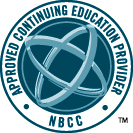
Professional Practice Building

Succession Planning for Your Counseling Practice: Managing the Expected and the Unexpected
Building a successful practice, regardless of the size, requires having properly trained individuals who can fill key positions. Succession planning is the process of ensuring that employees are recruited and developed to fill those key roles within your practice. It is an ongoing process that should begin at the start of building your practice, or as soon as possible after, and continue throughout the span of your practice. It is about practice continuity, building a practice that will endure.
Whether you have a solo practice, small group, or larger practice, finding qualified individuals to fill roles that are unexpectedly left vacant can be a challenge. The benefit to having a succession plan lies in having individuals identified through cross training, development, and/or contingency planning who can step up to fill the gaps. In this webinar we will discuss what succession planning entails and how it relates to other areas of your practice as the business it is and to its overall business strategy.
After this webinar, participants will be able to:
- Identify key components to effective succession planning for any size practice.
- Recognize the impact of social media and technology as it relates to interaction with clients.
- Explore strategies for expanding your practice with support staff and additional counselors.
- Develop a plan for building a practice to sell.
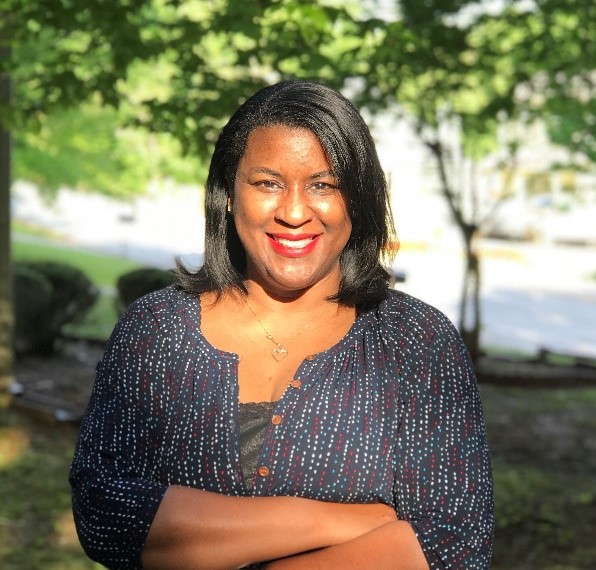
Lynell Howard, PhD, NCC, LPC, CPCS
Dr. Lynell Howard has been providing psychological counseling and consulting services for over 20 years. She began her career as a member of a private group practice where she engaged in clinical counseling and psychometric assessment. She later established an independent practice and has served numerous counseling and consulting clients in small and large organizations, including the US Armed Services, public school districts, state government, and the private sector. She has interests in military mental health, trauma, research, and organizational training.
In 2016 Dr. Howard founded Howard Harris & Associates, LLC, which specializes in providing professional training and development for behavioral health providers and other professionals. A native of New Orleans, Louisiana, and current resident of Lawrenceville, Georgia, she holds licenses as a professional counselor in both Georgia and Louisiana and has been a practicing consultant and clinician in various settings. She earned a bachelor’s degree in psychology from Tulane University, master’s degree in clinical psychology from Midwestern State University, and doctorate in industrial/organizational psychology from Capella University. She is a board certified counselor and has provided training and consulting services across the U.S., Europe, and Asia.
Course DocumentQ & AManaging the Risk of High-Risk Clients in Private Practice
Clients may have a difficult time identifying signs and symptoms of high-risk behaviors. Often when a client presents for therapeutic sessions one time a week or twice a month, it may be challenging for the therapist to assist them with connecting the effects of high-risk behavior patterns to their everyday life. A client’s perception may be that high-risk behaviors, such as impulsivity, damaging interpersonal relationships, and physical self-harm, are an appropriate way to manage their thoughts and feelings; however, those behaviors are really a cry for help when emotions become intolerable.
After this webinar, participants will be able to:
- Discuss high-risk behaviors with a client and assess for potential types of risk.
- Recognize the impact of social media and technology as it relates to interaction with clients.
- Summarize high-risk prevention with special populations and the mental health diagnoses that have the highest risk for self-harm and suicide.
- Identify multiple therapeutic approaches for suicidal clients presenting with high-risk behaviors, including interpersonal therapy, crisis management, cognitive-behavioral therapy, and dialectical behavioral therapy.
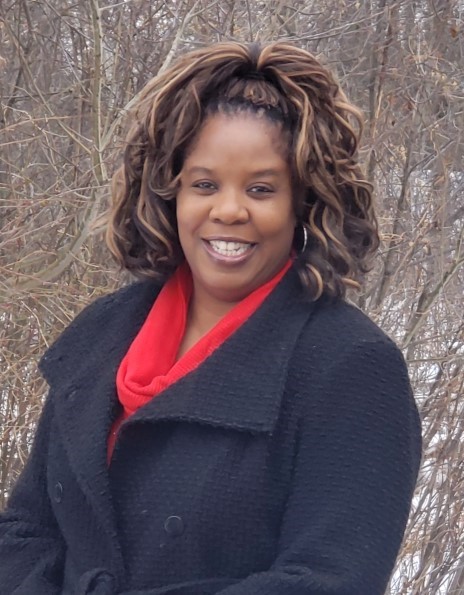
Camille D. Grier, MS, NCC, LPC, CPCS
Camille D. Grier has been a Licensed Professional Counselor in Georgia with over 13 years of experience working as a professional counselor and life coach. Ms. Grier has been in private practice since 2009. She received her bachelor’s degree in psychology with a minor in sociology from Georgia State University in 2001. Ms. Grier received a graduate degree in community counseling from Mercer University in 2005. She is a National Certified Counselor, Licensed Professional Counselor, Certified Professional Counseling Supervisor, EAP certified provider, and Military Certified Family STARR provider. Ms. Grier has provided Certified Professional Counseling Supervision training for licensed professionals seeking certification. She has presented trainings in the workplace, schools, and community organizations.
Ms. Grier has worked with clients with a wide range of concerns, including depression, anxiety, relationship issues, parenting problems, career challenges, and severe and persistent mental illness (schizophrenia, bipolar, major depression with psychosis). She also has helped many people who have experienced physical trauma or emotional abuse. She is an interactive, solution-focused therapist. Her therapeutic approach is to provide support and practical feedback to help clients effectively address personal life challenges. Ms. Grier integrates complementary methodologies and techniques to offer a highly personalized approach tailored to each client. She believes it takes courage to seek a more fulfilling and happier life and to take the first steps toward change. With compassion and understanding, she works with each individual to help them build on their strengths and attain the personal growth they are committed to accomplishing.
Course DocumentQ & AIdentifying Ethical Landmines in Private Practice
As part of graduate training, counselors are required to take coursework in ethics. This is done to assist clinicians in determining a path to making decisions to stay compliant within the ethical codes. With this training and the ethics requirements state licensing boards require for license acquisition and renewal, one would think that violations would be more of an exception than an everyday occurrence. Such is not the case as reported by liability insurance companies and state licensure boards. Violations take place and it is often because clinicians haven’t utilized the resources available to them. Many of these violations put counselors and clients at-risk and can impact the effectiveness of the counseling process. Those in private practice can have a higher risk factor, especially if they don’t consult with colleagues prior to taking action.
After this webinar, participants will be able to:
- Provide an overview of the ethical codes utilized by NBCC, ACA, and AHMCA and the most common ethical violations that occur.
- Recognize the impact of social media and technology as it relates to interaction with clients.
- Describe the clinician’s responsibility relating to mental health issues and the duty to warn.
- Identify common ethical dilemmas and legal issues affecting counselors.
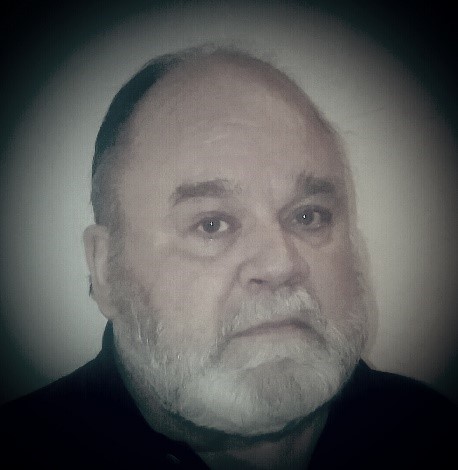
Jeff Hughes, EdS, LPC, CPCS
Jeff Hughes has more than 20 years of experience in counseling and supervision in a variety of settings, including college counseling centers, community mental health, in-patient addictions, and private practice. In 2016, he started Peak Solutions, LLC, to provide professional development training for clinicians, clinical supervision for licensure, and consultation to the helping professions. Mr. Hughes received his bachelor’s degree in accountancy from the University of Oklahoma. After 20 years in the profession, he changed career paths and attended graduate school at the University of West Georgia. There he obtained a master’s in community counseling and an education specialist in counseling with a specialization in clinical supervision. He pursued doctoral studies in counselor education and supervision at Ohio University, focusing on clinical supervision, marriage and family, and multicultural issues in counseling.
Mr. Hughes is a Licensed Professional Counselor and a Certified Professional Counselor Supervisor in Georgia. He is an educational provider to the Licensed Professional Counselor Association of Georgia. Mr. Hughes has presented at conferences on the local, state, regional, and national levels. He enjoys interacting with attendees during trainings. He believes we can all learn from our interactions with others in our profession and encourages discussion to add to the richness of the presentations.
Course DocumentQ & AKey Elements of Protection: Practice Structure and Provider Coverage
Many counselors decide to go into private practice ill-prepared to take care of the management aspects of a business. This webinar will assist clinicians/providers with information necessary to help their practice avoid pitfalls. With little understanding of the challenges of private practice and business management principles, many new practitioners give up and move to a clinical setting or leave the profession of counseling entirely. Additionally, some providers do not think of private practice as a business and fail to consider the nature of being self-employed. Private practice first seems attractive because providers think about freedom to control their schedule, more money, and complete autonomy. But some clinicians/providers don’t take time to learn the business aspect of their practice. How to choose and set up a business structure is an important aspect of your practice. Being a part of this webinar will give participants insight into identifying the best structure for their practice. This webinar will give information on the key elements of protection for both practice and provider. The key to a successful practice is not just having competence in the profession and a sincere compassion to help others, but also the need to start with and maintain “business mindfulness” throughout the duration of your practice. So, please join us during this webinar presentation to prepare your practice for success!
After this webinar, participants will be able to:
- Select a practice structure based on their particular need as a practice, as well as learn how to register your practice structure.
- Recognize the necessary business and provider liability insurance coverages to protect against pitfalls.
- Understand that it is possible to have care and compassion for clients, while simultaneously exhibiting “business mindfulness.”
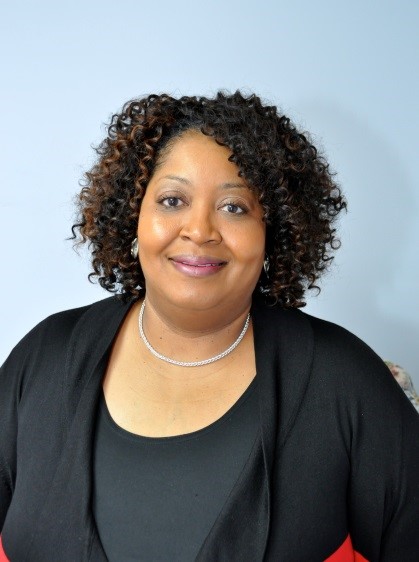
Sandra V. Phillips, MS, NCC, CADCII, ICADC, SAP, LPC, CPCS, CEO
Sandra V. Phillips started her private practice, Transformation Behavioral Health, LLC, in 2014 in Augusta, Georgia. Ms. Phillips provides counseling services to a multicultural and diverse population. Ms. Phillips received her BA degree in psychology from the University of West Georgia, where she fell in love with humanistic psychology. She later earned both an MEd and MS in counseling and psychology from Troy University. Ms. Phillips is a National Certified Counselor, Licensed Professional Counselor, Certified Alcohol and Drug Counselor II, International Certified Alcohol and Drug Counselor, Department of Transportation Substance Abuse Professional, and Certified Professional Counselor Supervisor. She is honored to be a Star Behavioral Health Provider, who renders counseling services to active military members, veterans, and their families.
Ms. Phillips enjoys working with both youth and adults. The belief that everything begins with a thought has defined her therapy approach with emphasis being placed on transforming by the renewing of the mind. Ms. Phillips offers faith-based counseling upon request. She provides individual, couples, group, and family counseling on a variety of issues, such as anxiety, depression, ADHD, substance abuse, and PTSD. She is an experienced presenter who enjoys interacting with attendees during trainings. She is an educational provider to the Licensed Professional Counselors Association of Georgia and Alcohol and Drug Abuse Certification Board of Georgia. She has presented in schools, community organizations, and corporate offices. She truly believes everyone can share in the learning and teaching process.
Course DocumentQ & AThe Well-Managed Counseling Practice
Counselors go into private practice for many reasons. Freedom over one’s own schedule. Income potential. Clinical independence. Other compelling reasons. Whatever the motivation for the counselor’s entrepreneurial inclination, a successful counseling practice requires a therapist to also be a manager. This session focuses on helping the counselor/manager determine how they will define and attain success in their practice. We’ll address critical skills and decisions that are necessary to manage a practice and flourish psychologically and financially in independent work. Choosing the income streams you desire, identifying and attracting your ideal client, managing your time, and balancing the clinical and managerial mind are just a few of the key considerations that every counselor in private practice must address.
After this webinar, participants will be able to:
- Outline the elements of a business plan for a therapy practice.
- Consider their motivation for private practice and their definition of success in practice.
- Explain the importance of identifying and marketing to their ideal client.
- Identify several important policies and procedures that can make or break a practice.
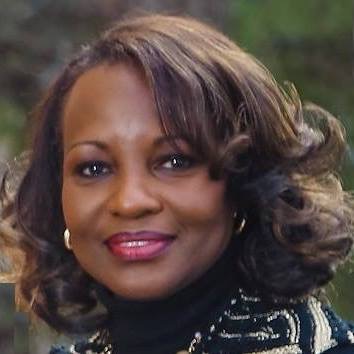
LaVerne Hanes Collins, PhD, NCC, MAC, ACS, BCC, DCC, LPC
LaVerne Collins began her role as program director for the NBCC Foundation in March 2017. For more than 20 years as an NCC, Dr. Collins has been a trainer, consultant, author, textbook contributor, and speaker throughout the United States, South America, and Africa. She served as the national clinical training coordinator for Chestnut Health System’s GAIN Coordinating Center; executive director of Lydia’s Place Pittsburgh (serving female offenders); grants manager of Richmond Behavioral Health Authority; and clinical supervisor of women’s substance use programs in Pennsylvania and Virginia. She is known for her Atlanta-based private practice, New Seasons Counseling, Coaching and Consulting, and she is recognized as an advocate for underserved and marginalized populations nationally and internationally. Prior to joining the NBCCF staff, Dr. Collins was a master trainer of Mental Health Facilitators for NBCC-I and 2015 NBCCF professional development awardee. Dr. Collins completed a dual bachelor’s degree at Syracuse University in management and communications, her Master of Science in education in community counseling from Duquesne University, and doctoral studies in Christian counseling from South Florida Theological Seminary.
Course DocumentQ & AGetting Paid: Joining Insurance and EAP Panels
Many mental health clinicians delay or even give up on their dream of starting a private practice. One of the most common influences that negatively impacts their decision is not knowing how to navigate credentialing to join insurance and Employee Assistance Program (EAP) panels. Often, clinicians become so overwhelmed after downloading an insurance and EAP credentialing application that they do not even attempt to complete the process. The information in this webinar will not only assist with the credentialing process but also show how organization is the key.
One failure of private practice success is not being in a position to receive payment for services through third-party reimbursement, such as insurance companies and EAPs. This webinar will provide valuable information as well as tips on becoming a panel provider. Join this webinar in taking one of the first steps to starting your private practice. Let me help you succeed and bring your dream of private practice to reality!
After this webinar, participants will be able to:
- Identify the benefits of being on an insurance and EAP panel.
- Discuss needed information to compile as a checklist in preparing for completion of insurance and EAP credentialing and enrollment into the CAQH credentialing database.
- Outline the credentialing process to become panel providers for insurance companies and EAPs from start to finish.
- Explore tips to assist with the credentialing process.
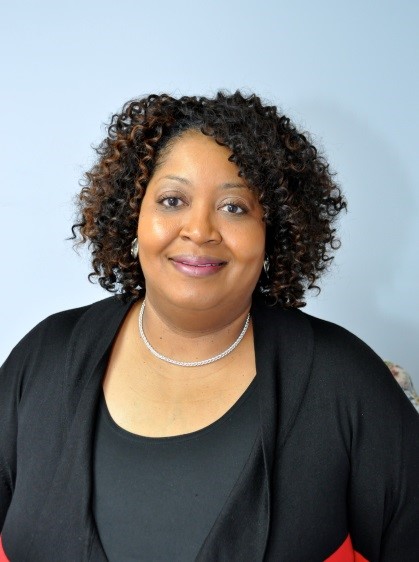
Sandra V. Phillips, MS, NCC, CADCII, ICADC, SAP, LPC, CPCS, CEO
Sandra V. Phillips started her private practice, Transformation Behavioral Health, LLC, in 2014 in Augusta, Georgia. Ms. Phillips provides counseling services to a multicultural and diverse population. Ms. Phillips received her BA degree in psychology from the University of West Georgia, where she fell in love with humanistic psychology. She later earned both an MEd and MS in counseling and psychology from Troy University. Ms. Phillips is a National Certified Counselor, Licensed Professional Counselor, Certified Alcohol and Drug Counselor II, International Certified Alcohol and Drug Counselor, Department of Transportation Substance Abuse Professional, and Certified Professional Counselor Supervisor. She is honored to be a Star Behavioral Health Provider, who renders counseling services to active military members, veterans, and their families.
Ms. Phillips enjoys working with both youth and adults. The belief that everything begins with a thought has defined her therapy approach with emphasis being placed on transforming by the renewing of the mind. Ms. Phillips offers faith-based counseling upon request. She provides individual, couples, group, and family counseling on a variety of issues, such as anxiety, depression, ADHD, substance abuse, and PTSD. She is an experienced presenter who enjoys interacting with attendees during trainings. She is an educational provider to the Licensed Professional Counselors Association of Georgia and Alcohol and Drug Abuse Certification Board of Georgia. She has presented in schools, community organizations, and corporate offices. She truly believes everyone can share in the learning and teaching process.
Course DocumentQ & APlanning Strategically for Growth: The HR Factors
A rapidly growing business can be an exciting place to work. The days are long and sometimes arduous, yet full of opportunity and new experiences. The day-to-day challenges often overshadow the importance of making plans and decisions about employees. This can lead to many problems: failing to attract and retain the best talent; neglecting staff training and support needs; frequent staff turnover; and minimizing or even ignoring compliance requirements. This webinar will discuss some key factors in laying a solid foundation for HR growth. A toolkit for planning strategically for growth will also be provided.
After this webinar, participants will be able to:
- Identify an organization’s primary goal(s).
- Discuss how to link primary goal(s) to HR.
- Identify the key factors in developing and defining roles and responsibilities.
- Outline the components of a strategic HR Plan.
- Discuss how to future-proof an HR Plan.
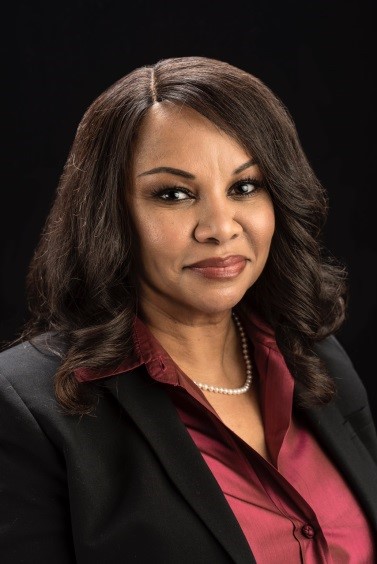
Hope Cheeks, MS
Hope Cheeks is President of Cheeks Consulting Group, a company that provides human resources development consultancy and training to organizations throughout the United States and the United Kingdom. Ms. Cheeks’ expertise is the maximization of human and organizational performance through a systems approach to learning and evaluation.
Ms. Cheeks graduated from Syracuse University with a BS in communications and marketing and from Georgia State University with an MS in human resources development.
Ms. Cheeks has over 30 years of experience in human capital development with extensive experience in the corporate and nonprofit arenas. She has served as Associate Director of Training for Synovus Financial Corp, and she also served as Vice President of Education and Development for an Atlanta-based start-up retail chain, Dekor, Inc., where she built the education and development program from the ground up. As the Project Director for Morehouse School of Medicine, Ms. Cheeks was responsible for all facets of training and evaluation for specified programs, and she successfully wrote and received funding for over $1,400,000 in federal grants. She has directed multiple grant programs, including a federal grant program for high-risk youth funded by the Substance Abuse and Mental Health Services Administration, a state-level pediatric AIDS project, and a pregnancy prevention program funded by the March of Dimes.
Course DocumentQ & ACosts, Cash Flow, and Controls: Financial Danger Zones for the Professional Counselor
Entering into private practice can be a rewarding experience, or a nightmare. What you do not know can hurt you! Avoid costly mistakes and start your practice on a solid foundation. This crash course in accounting will be fun and set you on the right path.
After this webinar, participants will be able to:
- Identify the start-up and ongoing costs of starting a counseling practice.
- Understand how to manage cash flow and patient receivables.
- Recognize the expenses that are deductible and efficient ways to keep track of them.
- Put adequate fraud controls in place when outsourcing or delegating financial tasks.
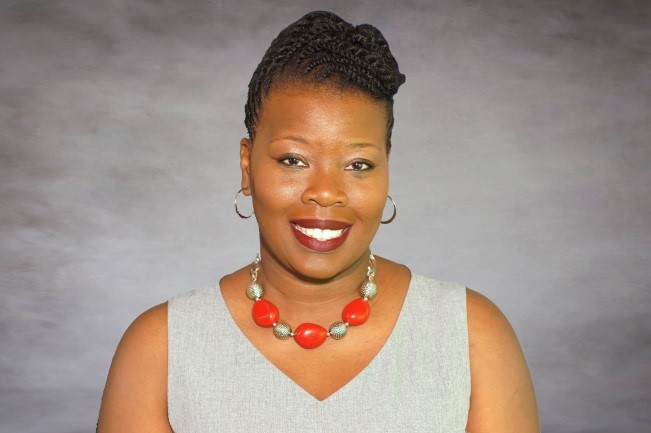
Bernadette L. Harris, MBA, MS, CFE
Bernadette Harris is known for taking complex subjects like taxes and accounting and making them easy to understand and fun. She is a tax and forensic accountant, bestselling author, and highly sought after keynote speaker committed to “Keeping Small Business in Business.” As president of By The Book Accounting, she has helped hundreds of entrepreneurs across the country start, run, and grow thriving business ventures.
Ms. Harris, a Certified Fraud Examiner (CFE), earned a BS in accounting from the nation’s oldest HBCU (Historically Black College or University), Cheyney University in Pennsylvania, and later earned her MBA from Keller Graduate School of Management, and an MS in fraud and forensics from Carlow University.
She has conducted workshops for the U.S. Small Business Administration and created several workshop series of her own. She has been featured on ABC, CBS, NBC, and other nationally known media outlets, speaking on entrepreneurship and fraud prevention. Follow her @TrustBernadette on all social media platforms.
Course DocumentQ & AHow to Effectively Market Yourself in 15 Minutes a Day
The idea of marketing can sound daunting for many counselors—not only how to do it, but how to do it without coming off as “pushy.” But, if you want sustained success in private practice, it’s necessary to run yourself like a business. This is the Marketing 101 class you should have had in grad school. Attendees will learn simple, yet effective strategies to start using immediately that are: free, beneficial, and ethical.
After this webinar, participants will be able to:
- Ethically engage in social media.
- Network with referral sources.
- Gain expert status through the media.
- Spread knowledge through public speaking/training.

Susan Fee, MEd, NCC
Susan Fee is a board certified counselor (NCC), author, and professional speaker living in Seattle. She has been a successful independent clinician in two private practices, starting her business from the ground up. Before becoming a licensed counselor, she had a career in radio journalism and freelance writing. Her work has appeared in national publications like The Wall Street Journal, USA Today, and Real Simple magazine. In 2016, she delivered a TEDx Talk titled, Take the Enemy Out of Frenemy.
Ms. Fee is a member of the American Counseling Association, is trained in Red Cross Disaster Mental Health relief, and is a volunteer narrator for Washington Talking Books for the Blind. Learn more by visiting SusanFee.com.
Course DocumentQ & ANBCC Foundation has been approved by NBCC as an Approved Continuing Education Provider, ACEP No. 805. Programs that do not qualify for NBCC credit are clearly identified. NBCC Foundation is solely responsible for all aspects of the programs.
Each state sets its own requirements for licensure, including continuing education requirements to maintain licensure. Questions about CE requirements for state licensure should be directed to your state board. You can find their contact information on our state board directory.
